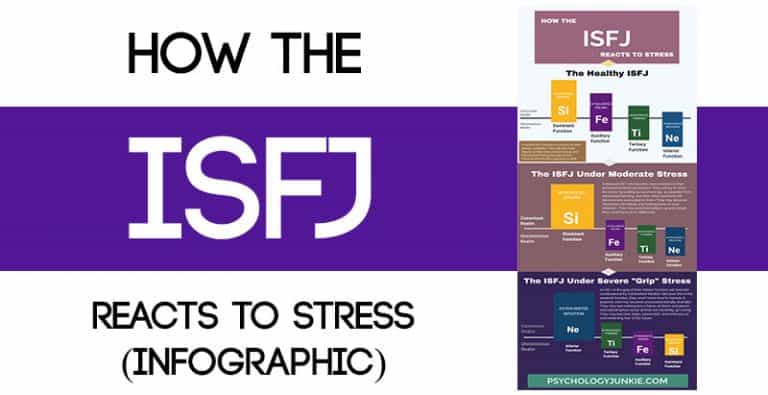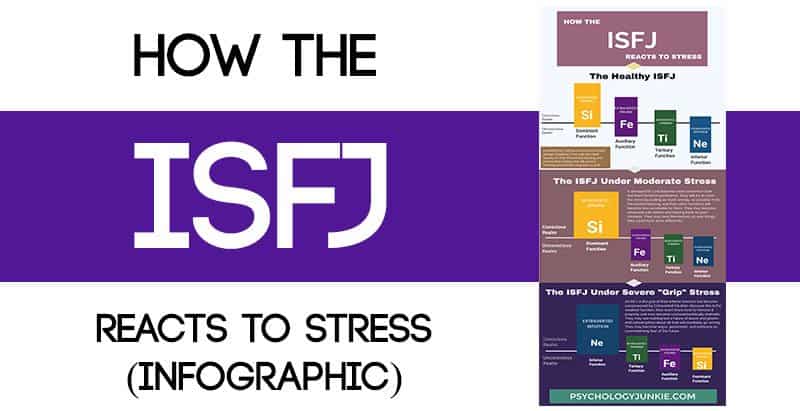Are you compatible? ISFJs and Relationships
ISFJs are some of the most naturally generous and caring individuals around. They are highly motivated to care for and defend their loved ones (hence their title “The Defender”). “It is better to give than to receive” is the true motto of the ISFJ. If you’re in a relationship with an ISFJ, be very glad. Your heart is well cared for. If you are an ISFJ and you’re trying to find the most compatible match for you, then the MBTI can be a really helpful tool in figuring out the pros and cons of each potential relationship.
Not sure what your personality type is? Take our new personality questionnaire here. Or you can take the official MBTI® here.

Don’t forget!
Not everything can be explained by the MBTI. I’m an INFJ married to an ISTP, and if you look at compatibility charts, we’re not supposed to get along. Any type can enjoy any other type. Some people say opposites attract, others prefer to stick with their own kind. The point of this post isn’t to disparage anyone from pursuing a certain type or to give you a reason to leave a relationship. The point of this post is simply to point out the various pros and cons of engaging with other types.
Table of contents
- What ISFJs Want in Relationships
- ISFJs and Guardians (SJ Types) in Relationships:
- ISFJs and Artisans (SP Types) in Relationships:
- ISFJs and Idealists (NF Types) in Relationships:
- ISFJs and Rationals (NT Types) in Relationships:
- ISFJ Relationship Strengths:
- ISFJ Relationship Weaknesses:
- In Conclusion…
- Sources:
Estimated reading time: 10 minutes
What ISFJs Want in Relationships
ISFJs get an immense amount of pleasure from serving and taking care of their loved ones. They have probably spent most of their life giving more than receiving, and as a result, are often taken advantage of. When they enter into a relationship, they love the opportunity to find ways to serve their partner and make them feel special and valued. However, they also want to find somebody who sincerely appreciates their generosity, and who will give back to them by showing consideration, thoughtfulness, and kindness. In Just Your Type: Create the Relationship You’ve Always Wanted Using the Secrets of Personality Type, authors Paul D. Tieger and Barbara Barron-Tieger say that the most important things to an ISFJ in a relationship are:
– Mutual commitment
– Fidelity
– Mutual support
– Being listened to
– Shared values
– Companionship
– Intimacy
ISFJs have a hard time asking for things, and often struggle with expressing their own needs. They can get so caught up in taking care of everyone else, that their own desires and needs go untended. In a relationship, they hope to find somebody who will give them a chance to slow down, relax, and be taken care of for a change. They also want somebody who will let them be generous, caring, and thoughtful, without questioning their motives. ISFJs take relationships seriously; they’re usually not looking for a fling or a casual relationship. They believe in true love and romance, and in the modern dating world they often feel pushed to conform to a more hands-off/casual dating style that isn’t naturally comfortable for them. ISFJ females tend to be very thoughtful and traditional; dressing up for dates, using good manners, and enjoying traditional tokens of romance like flowers and chocolates. Male ISFJs are usually true gentlemen, treating their date with old-fashioned courtesy. They may walk their date to the door at the end of an evening, open the door for their date, help her on with her coat, etc,..
ISFJs and Guardians (SJ Types) in Relationships:

ISFJs and other SJ types can get on incredibly well. They tend to share a lot of the same values and ideas about life. They will both take the relationship seriously, and are both going to tend to be responsible and trustworthy. An ISFJ and another guardian can completely exemplify “two peas in a pod”. They will both take home life seriously, and enjoy creating traditions and commemorating special occasions. They both are industrious and practical and appreciate each other’s responsibility and willingness to take care of each other. Problems for an ISFJ/SJ relationship occur when they both are too stuck in their own idea of what’s “right”. SJs can be very stubborn, and they can both become very critical of each other. This can be especially difficult for an ISFJ with an ESTJ or ISTJ partner who is naturally less tactful or considerate in their choice of words. ISFJs hate conflict in a relationship, and long for harmony. Dealing with a partner who is cold and careless with their words (as ESTJs and ISTJs can unintentionally be) can be very difficult for them. The ISFJ will often hold onto their hurts until they reach a breaking point, and then they will unleash a tirade of criticisms that will surprise their partner, who often thought everything was just fine. An ISFJ with an ESFJ partner can be an excellent match, so long as the ESFJ is considerate of the ISFJs need for privacy and time alone and doesn’t “wear them out” with constant social events. An ISFJ with an STJ partner can be a good pairing as long as the STJ partner tries to develop more of their feeling side, and express consideration with their words.
ISFJs and Artisans (SP Types) in Relationships:

The ISFJ/SP pairing is often very successful and filled with chemistry and fun. People think of artisans (SPs) as impulsive, irresponsible and wild. People think of SJs as stuck in their ways, concerned, and sober. These sometimes negative stereotypes, however, don’t stop these two types from forming an instantaneous “spark”. ISFJs can truly enjoy the SPs carefree, fun-loving personality and style of living. ISFJs tend to be worriers, and the SP types can help them to relax and take life one day at a time. SPs in turn appreciate the ISFJs responsible nature and generosity. The ISFJ can be a balancing force in the SPs life. There are usually a lot of sparks between these two types. However, no pairing is perfect. ISFJs take their relationships very seriously and SP types are more impulsive and afraid of commitment. While there is a lot of chemistry, they need to be very honest with each other about what they truly want in a relationship, so that nobody gets hurt. In Please Understand Me II by David Kiersey, the author says that the ISFJ/ESTP pairing is the best match. He says
“The outgoing, tough-minded Promoters (ESTPs) tend to have high periods during which they are in a whirlwind of euphoric activity, and the seclusive and friendly Protectors (ISFJs) enjoy preparing a quiet place for the high-rolling entrepreneur to crash.”
My own personal thoughts: I think the ISFJ/SP pairing could work really well. I’m hesitant to put a “best” pairing out there for anyone. I think two well-developed, understanding individuals of any type can get along really well. I think for an ISFJ/SP pairing to work, there just has to be a lot of honesty and openness involved.
ISFJs and Idealists (NF Types) in Relationships:
These two types can have a very deep and fulfilling relationship. ISFJs and NFs are both very concerned with each other’s well-being and are both committed to creating harmony within their relationship. They both will take care of each other, and enjoy trying to make the world a better place. The ISFJ often appreciates the idealists ability to see potential and possibilities and the idealist will appreciate the ISFJs generosity and concern for society. Problems can arise in this pairing when the ISFJ gets tired of the NFs tendency to get overly excited about “wild” ideas, or their tendency to think “outside the box” in sometimes impractical ways. NFs tend to be mystical and questioning, and ISFJs tend to see things in more traditional ways. This can sometimes worry the ISFJ who may think the idealist is getting carried away or acting “crazy”. Idealists need to be careful to not be too demanding and perfectionistic with their ISFJ partner. NF types want a “soulmate” and are always looking to bring their relationship to a deeper, more meaningful level. They can, in turn, be too demanding or pushy for the ISFJ partner who is more content with a traditional relationship and a simple, practical way of life.
ISFJs and Rationals (NT Types) in Relationships:
ISFJs and Rationals can get along really well; although they’re probably about as different as two pairings can get. The ISFJ admires the NTs drive and ambition, often relating because they themselves have such a strong work ethic and sense of duty. ISFJs admire the NTs ingenuity, and can really enjoy seeing their ideas come to life. NTs appreciate the ISFJs stability and the way they care for others and take care of the home; an area that NT types are prone to neglect. An NT type can also appreciate how thoughtful and generous the ISFJ is. These types can both find each other intriguing and different in ways that are refreshing to each other.
This pairing does have some potential problem areas, however, just like any pairing. ISFJs can often feel “blocked out” of the NTs world. The NT type will be so focused on logic, the theoretical, and the abstract, that they can unintentionally scorn the ISFJs need for routine and their admiration for traditional values. NTs can also be unappreciative or even neglectful of the things that the ISFJ is doing to try to show love or to take care of their NT mate. ISFJs love to make the home a harmonious, pleasant place, and the NT type is more likely to overlook these things. The NT type can also see the ISFJ as needy because NT types are more focused on logic and theories than emotions and feelings; an area that is especially important to an ISFJ. The ISFJ can see the NT type as harsh and unkind, becoming hurt by their apparent lack of interest in showing sensitivity. The ISFJ can also be more closed-minded to the theories and ideas of the NT type, preferring to focus more on concrete and traditional ideas.
Although some of this sounds negative, the NT and ISFJ can have a truly happy relationship; the more well-balanced each type is the better they will understand and admire each other.
ISFJ Relationship Strengths:
– They are warm, thoughtful, and affirming
– They are excellent listeners
– They will do whatever they can to fulfill their duties and responsibilities
– They are very generous
– They are usually good at handling money
– They take their relationships and commitments seriously
– They are usually very organized and practical
ISFJ Relationship Weaknesses:
– They may not pay enough attention to their own needs
– They strongly dislike conflict or criticism
– They have difficulty leaving bad relationships
– They may have a hard time expressing their own needs or desires
– They may have difficulty accepting new ideas or views
In Conclusion…
The ISFJ can truly find happiness with any of the 16 Myers Briggs® types. It really comes down to being understanding, working on your strength and weaknesses, and understanding the strengths and weaknesses of your partner.
Find out more about your personality type in our eBooks, Discovering You: Unlocking the Power of Personality Type, The INFJ – Understanding the Mystic, The INTJ – Understanding the Strategist, and The INFP – Understanding the Dreamer. You can also connect with me via Facebook, Instagram, or Twitter!
Sources:
Please Understand Me II by David Kiersey
Just Your Type! by Paul D. Tieger and Barbara Barron-Tieger
Personalitypage.com – ISFJ Relationships
Truity.com – ISFJs in Relationships
16personalities.com – ISFJ Relationships

Subscribe to Our Newsletter

Want to discover more about personality type? Get the inside scoop with Susan Storm on all things typological, along with special subscriber freebies, and discounts on new eBooks and courses! Join our newsletter today!









